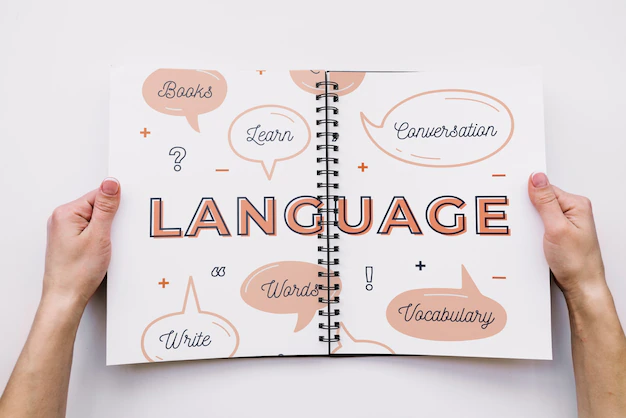Main Highlights:
- Should American students study foreign languages?
- Why is learning multiple languages crucial?
- What advantages come from studying a second language
- What are the best languages to learn?
The United States is infamous for producing monolingual people.
If you travel to Europe, you’ll discover that more than half of the population is bilingual, including in English. Most European students had to start learning a second language as early as age 6 in 2015.
America is nothing compared to that. Compared to France, Romania, and the Netherlands, which had 100% of their students studying a foreign language as of 2017, only 20% of American students were doing so as of 2017.
To put it simply: Yes, they should.
Learning a second language has a tonne of advantages. Learning a new language can enhance cognitive abilities such as problem-solving, memory, and analysis. Studies have also revealed that picking up a new language can improve test results in other subjects.
Learning a second language can affect business opportunities and enhance brain function. Before even bothering to apply, anyone interested in working abroad, especially in Europe, should ensure a second language is listed on their resume.
It’s all about the numbers. 75% of EU adults who are working reported knowing at least one foreign language in 2016.
A New American Economy study indicates that there is a growing need for bilingual workers. The likelihood of landing a job is low when up against competitors with the necessary language experience.
If learning foreign languages is so valuable in today’s workforce, why aren’t more Americans doing it?
Only 36% of Americans believed that having knowledge of a second language was crucial for success in the workforce, according to a different Pew Research Center study.
The attitude of our citizens is undoubtedly one of the many factors contributing to America’s inferior performance in the study of foreign languages.
Marty Abbott, executive director of the American Council on the Teaching of Foreign Languages, responds to this by stating that Americans frequently think they can’t possibly learn a second language or that they are too old to do so.

What can be done to make sure American students are getting the right instruction if learning a foreign language is now so crucial?
First, before graduating from high school, students must complete several years of foreign language instruction. Only 11 states currently require foreign language proficiency for graduation, according to a report by American Councils.
Simply put, this is unacceptable.
There are other factors contributing to the madness, one of which is a shortage of qualified foreign language instructors. Language proficiency is a requirement for teaching, but it is much lower on average for foreign language instructors than it is for members of the U.S. armed forces.
This indicates that Navy sailors have a higher likelihood of speaking a foreign language more fluently than your Spanish teacher.
The issue of budget is another one. Foreign language instruction simply isn’t regarded as a high priority in American public schools, despite the fact that those skills can be extremely valuable.
The performance of American schools must improve. Students in the United States can catch up to their international peers by requiring foreign language instruction, funding programs with time and money, and rigorously vetting potential teachers.
America will lag behind if this happens.

Why is learning multiple languages crucial?
In our multilingual world, relationships are more crucial than ever. Knowing a second language can always give you an unfair advantage in an increasingly globalized world.
The advantages of being bilingual are clear:
- Your memory and brain functions will improve,
- Your career will benefit, and
- Your understanding of the languages you already speak will improve.
Learn a second language, and your career will change dramatically. Being a part of a globally connected society means that an increasing number of jobs are advertising positions where speaking more than one language is required.
Employees are frequently asked to travel for work, strengthen these relationships, or be relocated abroad as more businesses engage in international trade and forge relationships with other nations.
Learning a second language can help you gain insight into other cultures in addition to increasing your chances of getting a good job or moving up in your career. You will be better equipped and more self-assured to travel the world and discover other cultures.
For the majority of nations, a serious issue is a lack of integration. The language barrier is usually to blame for this. People who live outside of their home countries wind up being lonely and only interacting with neighbors who speak the same language as them.
The ability to participate in a community with a different culture and learn more about our surroundings is made possible by learning a second language.

What advantages come from studying a second language
As previously stated, learning a new language has many advantages in today’s globalized society. Let’s examine a few advantages of learning a second language.
1. It enhances memory
Your brain’s functions become more active the more you use it to pick up new skills. Your brain is forced to become accustomed to new vocabulary and grammar rules when you are learning a new language. It enables you to hone your memory so that you can remember new words, connect them, and use them in context.
2. Improves your capacity for multitasking
Multitasking and time management are two abilities that will always come in handy. The ability to switch between languages is possessed by multilingual people. Their capacity for multitasking is aided by their ability to communicate and think in multiple languages.
3. Enhances performance in other academic disciplines
Being fully immersed in a language-learning environment entails learning more than just the fundamentals. It entails taking part in extracurricular activities or learning how to communicate with your peers in that language.

What are the best languages to learn?
1. Russian
Due to numerous geopolitical factors, the Russian and English languages are not very closely related. Due to its intricate grammar and syntax rules, it is a very difficult language to learn. It is, however, a very politically and culturally relevant language.
2. Arabic
Because it can advance your government career and open up countless opportunities in business and international relations, it is in high demand.
One of the top 5 most spoken languages in the world, Arabic is spoken by over 300 million people. You can learn more about Arabic culture and religion by learning Arabic as a second language.
It offers fantastic travel opportunities in addition to giving you chances to widen your network.
3. Spanish
Because you read words as they are written, many people consider Spanish to be one of the simplest languages to learn. More than 400 million people use Spanish, which overtakes English as the most widely spoken language in the world.
Being able to communicate and build relationships in Spanish as well as in Latin America can be a huge advantage.








